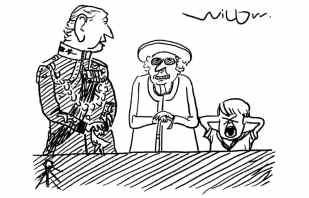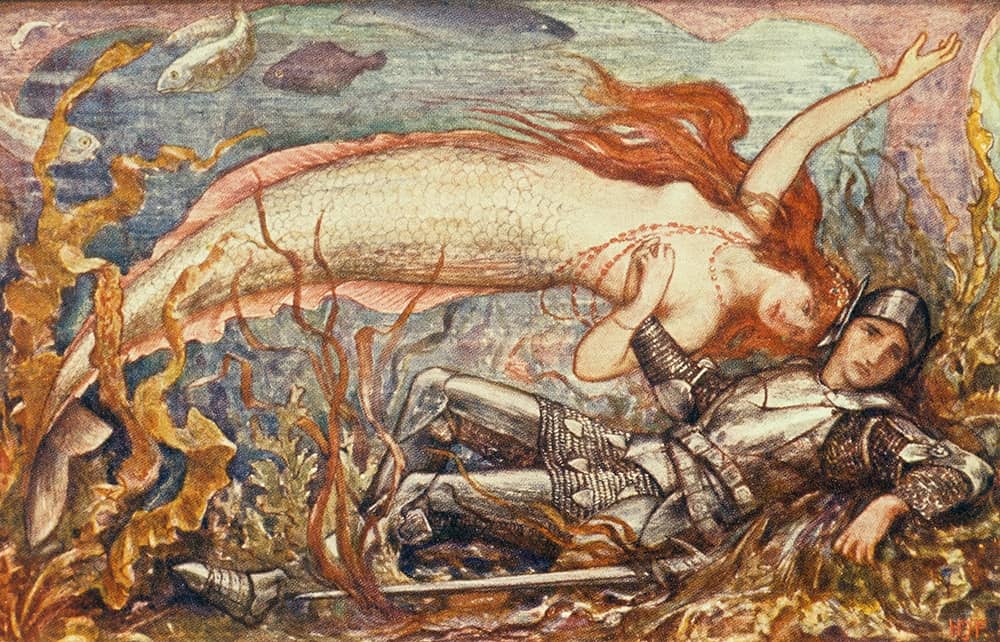I may have broken the law this week, without having intended to, so great was my rush to return home. I forgot to put on my seat belt and may have exceeded the speed limit on more than one occasion. The cause of my intemperate haste was, of course, a desire to be back at my house in time to listen to BBC Radio 4’s daily evening arts magazine programme, Front Row.
I live in a part of the world where the radio reception in cars is thinnish to non-existent, you see. Looking around me, as I depressed the accelerator further than I should, I noticed that everybody else was driving with similar fury, presumably for the same reason: haring back to catch Front Row. The shops were all closed and we travellers envied those inside, work over for the day, huddled around their wirelesses ready for the show.
I screeched into my drive at 7.20, so missed part of the first item on African music. This was enraging as, like most people in the country, I am a massive fan of African music and think it far superior to that white fossilised Beethoven crap. But luckily I was in time to catch the entirety of the next item, a long discussion about a new book called 100 Queer Poems, with excerpts from several read aloud. I had not known that ‘queer’ now encompasses everybody who is not white, regardless of whether or not they bat for the other side, but apparently it does, according to a slightly deranged woman on the programme.

My favourite of these ‘queer poems’ – i.e., an anthology compiled not on account of their literary value but simply because of the author’s sexual preference (or perhaps colour) – was one by a man who suggested that the British Empire had ‘forced us to live in a world lacking in mermaids’. Obviously I am fully cognisant of much of the evil we inflicted upon the subjects of our imperial rapacity, but I had not known that we also exterminated mermaids. I suppose that would explain why there are so few about these days. Did we also garrote unicorns, do you suppose?
Two thoughts occurred as I listened to this artless tendentious bilge. The first was how lovely it was to work for an organisation which is commercially unaccountable and whose producers, therefore, are able to indulge fully their infantile progressive political agendas. This involves a morbid obsession with race and sexual orientation, of course – the following morning I switched on the radio and they were championing some dead black harmonica player whom one interviewee likened to Jimi Hendrix and who everyone concurred had been transgressed by whitey. I switched off again.
The second thought was that it’s almost impossible to complain about such programming – and indeed the general tenor of pretty much all BBC output – without being cast as a bigot. And so, by and large, we stay shtum: the exception being the excellent Lionel Shriver, who has pointed out the absurdity of this all-consuming obsession and the wholly false picture it paints of our country.
Liberals – in the modern debased sense of the word – see black and Asian people as their needy clients
Let me give you another example. On Sunday evening a BBC TV news programme carried five vox pops from ordinary Britons about the Queen’s Platinum Jubilee. All five were black or Asian people. Does this matter? In a sense, no. But the intention behind the selection matters: they are lecturing us because they think we are reprehensible. They are making a political point. Because it beggars belief that those were the only five people they could find who had views about the celebrations for our Queen.
And these same politics are why the new Doctor in Doctor Who is black and his sidekick transgender. Here is the difficulty. I have not the remotest objection to someone black playing the part of the Doctor, not least because I never watch it. I object simply to the reason the new Doctor is black, much as the previous one was a woman.
And if political considerations were not the reason, then you will forgive me for assuming that they were, because that has been the narrative of the BBC for the last ten years. It is a politically driven agenda and, in its cringing tokenism and patronage, actively racist against the very people it has decided are in need of ‘help’. Liberals (in the modern debased sense of the word) see black and Asian people as their clients, as their needy clients.
It is not just the BBC, of course. In this week’s issue Lionel Shriver also mentions the bizarre tendency of almost all TV adverts to feature mixed-race couples. According to the Office for National Statistics, 96 per cent of couples are of the same ethnicity. So why do advertisers persist in portraying this reality when attempting to sell their products? There are precious few Chinese or other Asian people in these adverts and it is rare for them to feature a white man with a black partner. I don’t know what that tells us.
Are we wrong to notice this stuff? Because, believe me, people do notice and the only reason they don’t say anything about it is because they fear they will be outed as racists. Perhaps that is the purpose behind all of this, to have us living in a kind of fear, so that we mend our wicked ways and finally admit that to be white is to be complicit in some form of subjugation.







Comments